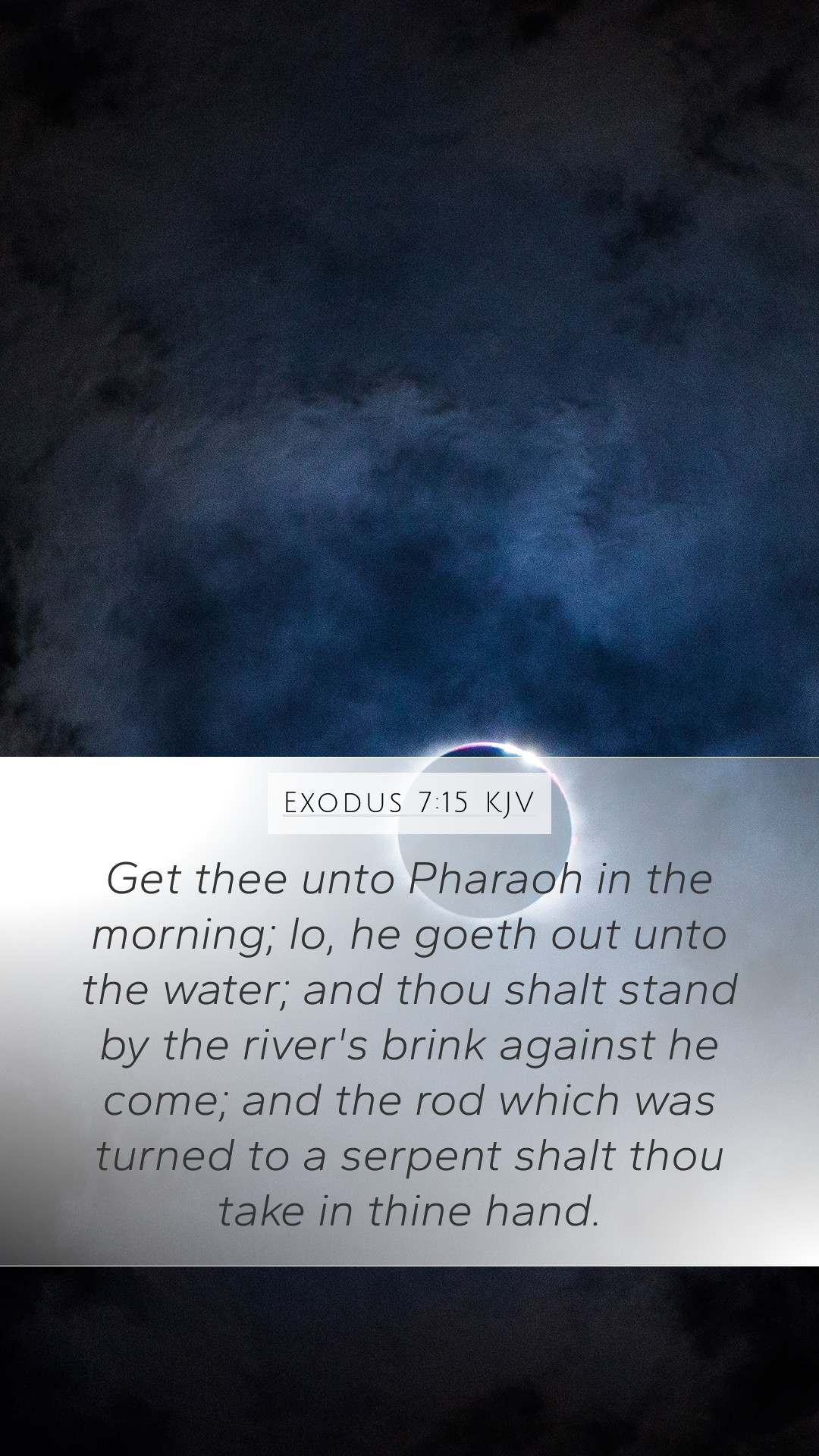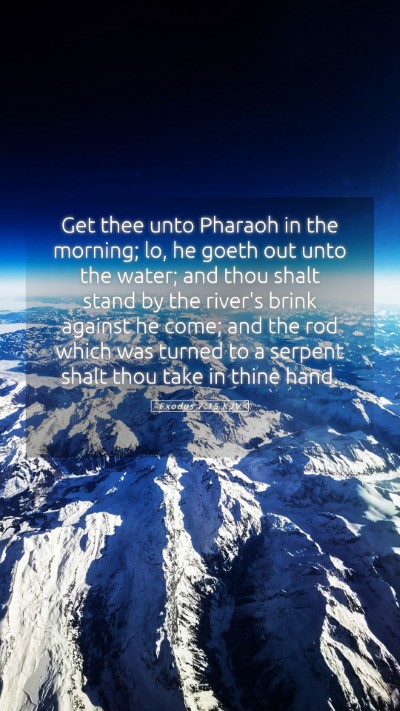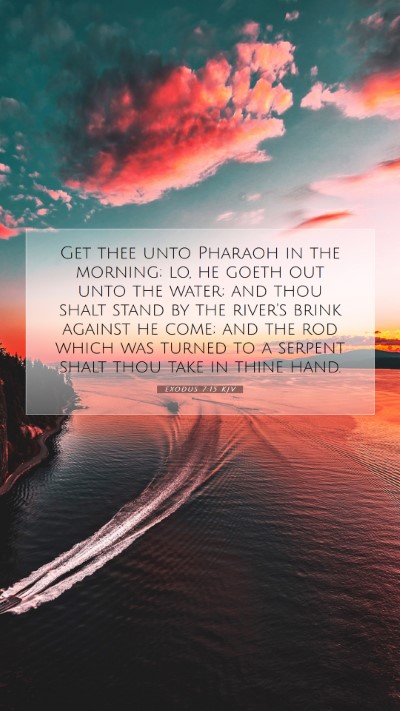Understanding Exodus 7:15
Exodus 7:15 states, "Go to Pharaoh in the morning; when he goes out to the water, stand on the bank of the Nile to meet him, and take in your hand the staff that turned into a serpent." This verse sets the stage for a significant encounter between Moses and Pharaoh, highlighting themes of authority, divine power, and the importance of obedience to God's commands.
Bible Verse Meaning
The meaning of this verse can be explored through various perspectives, drawing insights from prominent public domain commentaries such as those by Matthew Henry, Albert Barnes, and Adam Clarke.
Matthew Henry's Commentary
Matthew Henry emphasizes the urgency and purpose of Moses' approach to Pharaoh. He highlights how Moses is instructed to meet Pharaoh at the time he is vulnerable—near the water. This detail underlines the symbolic significance of the water, which plays a crucial role throughout the Exodus narrative, as God’s power will soon be displayed over it.
Albert Barnes' Analysis
Barnes notes that this encounter is pivotal as it serves to demonstrate the supremacy of God over the Egyptian gods. Pharaoh often worshipped the Nile, and by challenging him at this sacred site, Moses is directed to confront the very source of Pharaoh’s power and pride. Barnes' commentary reflects on the idea that God's instructions are strategic and purposeful.
Adam Clarke's Interpretation
Adam Clarke provides a rich examination of the passage, mentioning the symbolism associated with the staff that turned into a serpent. Clarke notes that this miraculous sign serves as a testament to God’s authority and serves as a forewarning to Pharaoh of the miracles to come. The staff represents God’s power and serves as a tool through which divine signs will be revealed.
Key Themes and Insights
- Divine Authority: The instructions given to Moses reflect God's control over the situation and His plan for liberation.
- The Vulnerability of Pharaoh: Encountering Pharaoh at the Nile emphasizes the point of vulnerability in his authority and challenges his dependency on the Egyptian gods.
- Sign of God's Power: The staff represents God’s power, showcasing that He is behind the impending signs and wonders.
Bible Verse Commentary and Exegesis
This verse serves as a simple yet profound proclamation of God's sovereignty. The mention of Pharaoh's morning routine by the Nile also suggests an intentional timing that God has meticulously planned. Such timing may suggest both practical reasons for public display and spiritual significance, as the Nile was revered in Egyptian culture.
Through the lens of Bible verse commentary, it becomes clear that this act is not merely about confronting Pharaoh, but also about revealing God’s glory and power to the Egyptian people, thereby laying groundwork for the eventual exodus of the Israelites.
Application in Daily Life
The events of Exodus 7:15 encourage modern readers of the Bible to reflect upon several key principles:
- Understanding and following God's instructions can lead to transformational moments in life.
- Recognizing that God works strategically in our lives, often at times of vulnerability.
- Being assured that God’s power can triumph over any worldly authority or challenge we face.
Conclusion on Biblical Exegesis
The study of Exodus 7:15 dives deep into the narrative of the Exodus and reveals key theological truths about God’s nature. The intersection of divine command and human leadership is a crucial subject that resonates through history and remains relevant for Bible study groups, online dialogue, and personal devotions.
Cross References
- Exodus 3:10 - Moses is called to deliver Israel from Pharaoh.
- Exodus 5:1 - Moses and Aaron go to Pharaoh with God's command.
- Exodus 7:1-2 - God appoints Moses as His spokesperson to Pharaoh.


